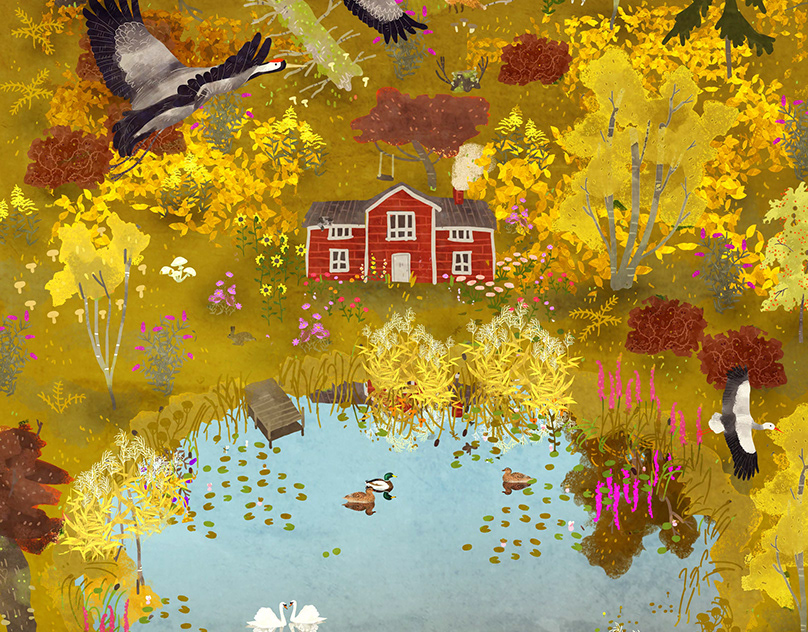
The need to support young adults with Autism Spectrum Disorders (ASD) in a way that enables them to live independently as part of a larger community, has inspired the program to develop a transitional artist residency program called The Eco-Studio.
The Eco-Studio is a proposed artist residency program operating in an urban setting as an alternative to rural ASD housing/living models.
The Eco-Studio is a proposed artist residency program operating in an urban setting as an alternative to rural ASD housing/living models.

The Eco-Studio is designed to provide participants lifelong skills for success. People with autism can succeed as valued, productive members of their communities with the proper supports.
By integrating visual arts, urban farming, and a collaborative work environment, program participants will gain real-world job and financial skills, utilize creative capacities, and develop socialization and self-advocacy skills in preparation to live independently, post-residency.
By integrating visual arts, urban farming, and a collaborative work environment, program participants will gain real-world job and financial skills, utilize creative capacities, and develop socialization and self-advocacy skills in preparation to live independently, post-residency.

The Eco-Studio program residency is unique because it provides opportunities for young adults with a need for daily support, to build competencies, and a network of trusting relationships. The Eco-Studio benefits both the program participants and local teachers, artists, and volunteers in the community through partnerships.
The Eco-Studio program residency will focus our program on the time in between a young adult’s exit from the parent or caregiver’s home, and their solo entrance into the world.
The Eco-Studio program residency will focus our program on the time in between a young adult’s exit from the parent or caregiver’s home, and their solo entrance into the world.

The Eco-Studio program residency will have support from job coaches and employers, as well as coworkers of individuals with autism. Jobs will match people in areas that reflect their interests and their strengths. Interest-driven opportunities for learning will be supported by professionals in the autism, creative, agricultural, and social work fields.
The Eco-Studio program will provide employment skills, opportunities and choices of learning through art, farming, or program management. The goal is to provide specialized work experience based on skill level and interest for each participant.
The Eco-Studio program will provide employment skills, opportunities and choices of learning through art, farming, or program management. The goal is to provide specialized work experience based on skill level and interest for each participant.
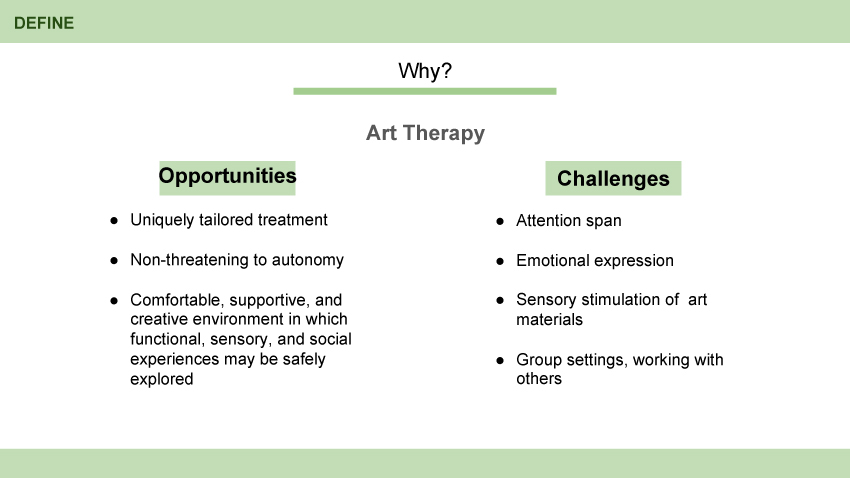
To create art, collaborate with peers and mentors, and impact the local community through its artist residency program, while developing skills in life-management, socialization, employment, and financial literacy.
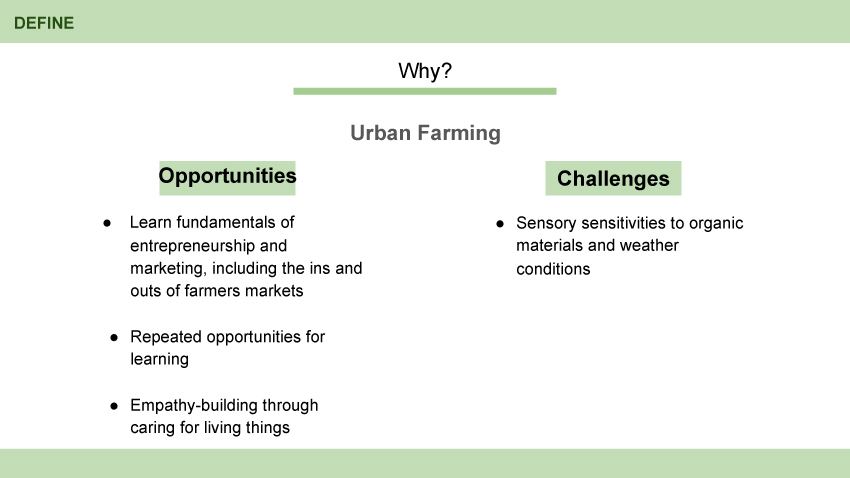
To interact with gardeners to manage energy-efficient technology in the physical space, learn about sustainable agriculture, and healthy food preparation through urban farming which will be sold as a way to learn about job skills and financial independence.

The Eco-Studio team’s paper sketches and vision of user experience:
1. ASD participants program
2. Facility structure

To build necessary skills for transition from family care to independent living. Successfully exiting the program with an established network of support will provide benefits in various aspects of their life.
To be fully equipped to facilitate all art-making activities, sustainable urban farming practices in the rooftop garden and classrooms for professional development workshops.
To be fully equipped to facilitate all art-making activities, sustainable urban farming practices in the rooftop garden and classrooms for professional development workshops.
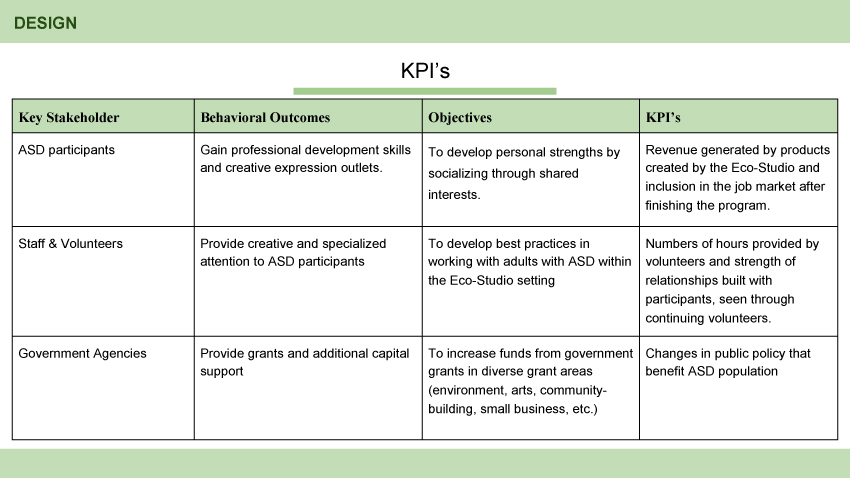
The Key Performance Indicators (KPIs) displayed above.
ASD participants: revenue from products created, employable job market skills, personnel in schools and community-based programs, life and social skills training; and workplace support
Staff & volunteers: partnerships with local universities, organizations for sustainability and education, and professionals
Government agencies: grants for urban farming initiatives, community-building, and programs for health and behavioral needs. Medical coverage and health plans on coverage for autism-related services such as supports and therapy.
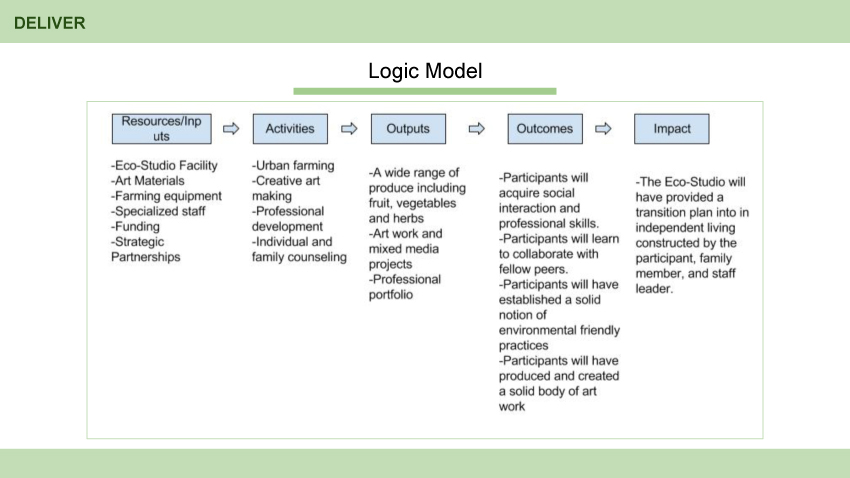

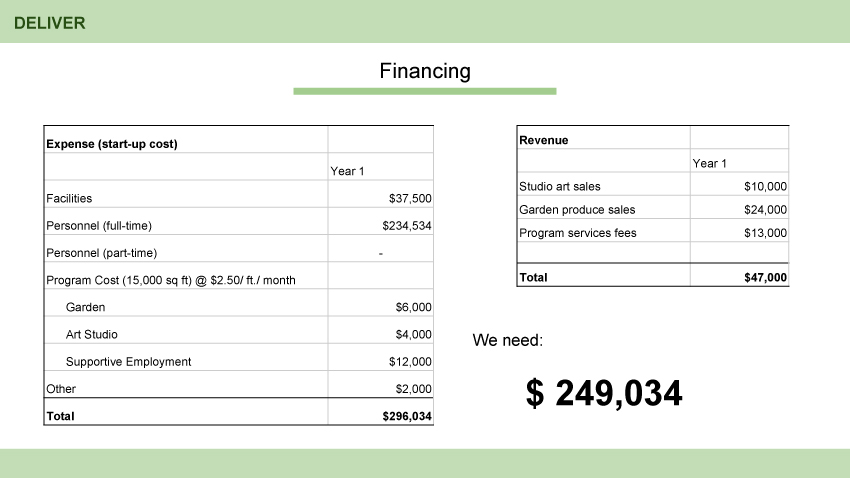
The Eco-Studio is able to sustain itself with $47,000 of revenue generated from art sales, garden produce sales as well as program services fees. These revenues are expected to grow more in the future. The Eco-Studio needs grants totaling approximately $296,034.


